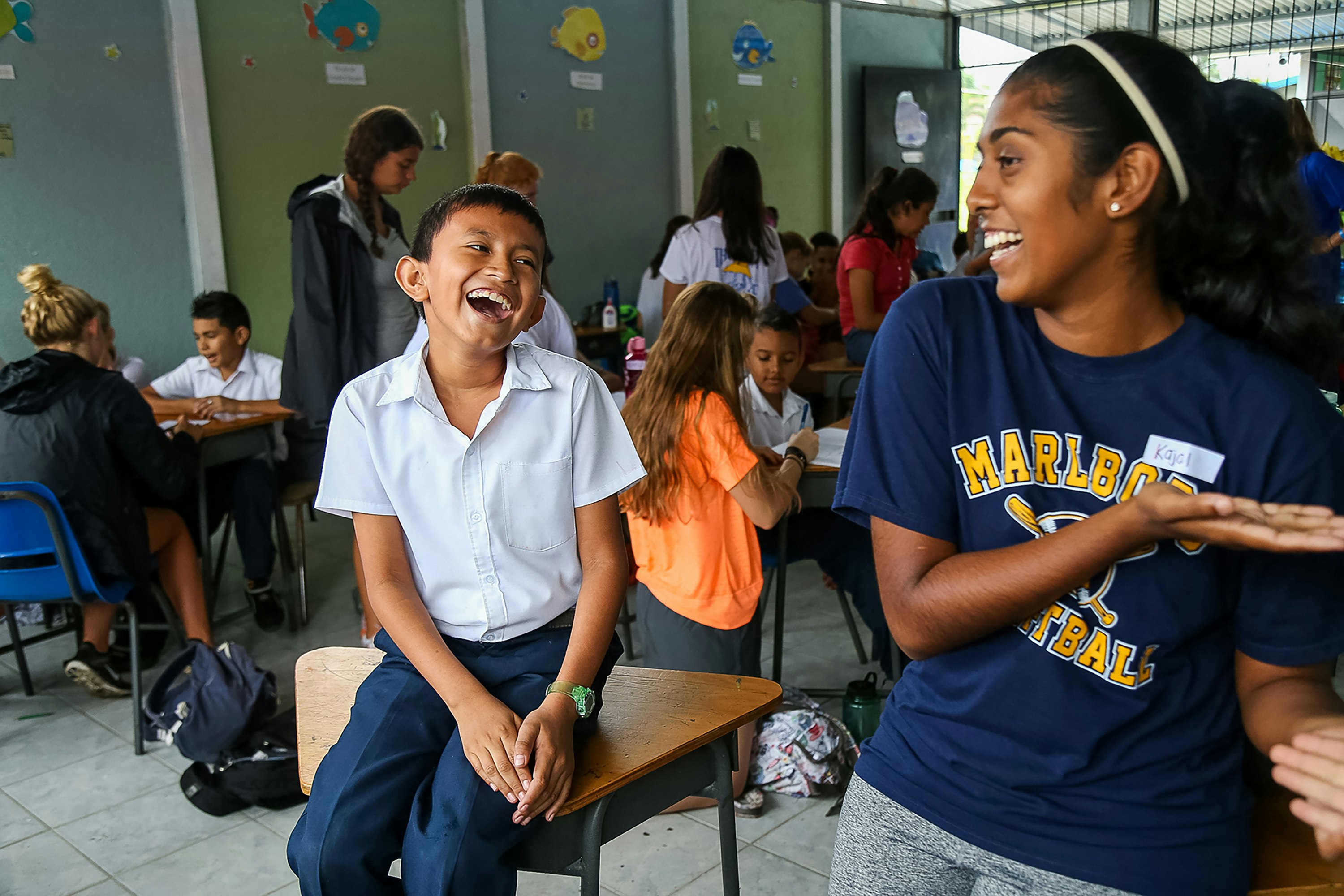Travel this program in the future
| Find out when new dates are available |
Gain valuable leadership and collaboration skills, and help enrich the lives of local community members as you develop a summer camp in La Fortuna. Start your journey with an exhilarating rafting trip followed by the start of your camp planning. Design a six-day summer camp in small teams, then meet the children you’ll lead in sports, arts, and other recreational activities throughout the week. Zip line, kayak, soak in natural hot springs, and boat along the picturesque Costa Rican coastline.
Similar Programs Available Now

Costa Rica: Turtle Conservation Project
Hands-on work to save sea turtles
Age 14-17
$2895 plus Airfare
-
-
Country:
-
-
-
Department:
- Student Travel
-
-
-
Duration:
- 16 Days
-
-
-
Max. Students:
- 20
-
-
-
Cost:
- $5,745 plus Airfare
-
-
-
Service Hours:
- 60
-
-
-
Program Types:
-
-
-
At-A-Glance:
-
Accomodation Amenities
Adventure/Physicality
Educational Activities
On-Program Travel
-
Packing the right gear (and the right amounts) is the first step to an incredible travel experience. Follow these tips to pack like a pro:
Travel light. Pack only the essentials. You’ll need less than you think!
Bring the right clothes. Pack clothes that are culturally appropriate for your destination and acceptable for service projects. This means bringing long shorts (think Bermuda and basketball shorts), t-shirts with sleeves to cover shoulders, and appropriate footwear.
Leave your valuables behind. While traveling, it’s easier for things to get lost, stolen, or damaged. Keep any prized possessions safe at home.
Check with TSA. Make sure your luggage complies with TSA regulations, especially your carry-on. Useful tip: Pack an empty water bottle and fill it up after security.
Extra paperwork? If you need additional forms filled out to get credit for your service hours, no problem! Bring these forms with you so they can be completed in-country.
A school backpack or similar sized bag is ideal.
- Passport
- Photocopy of passport
- Photocopy of flight information
- Wallet/money
- Book and/or journal
- Pen
- Phone
- Camera
- Chargers
- Change of clothes
- Reusable water bottle
- Medication
- Additional community service forms
- Visa documentation (if applicable)
- Consent to Travel Letter (for students under 19, recommended by the US State Dept but not required)
- Rustic Pathways emergency contacts
A 50-70 Liter duffel bag or backpack is ideal.
Clothes
- Socks (5-8)
- Underwear (6-8)
- Pants/capris (3-4)
- Service shorts (3-4) (Must be appropriate to work with children)
- Tank Tops (3-4)
- T-shirts (5-7)
- Long sleeved shirt (2-4)
- Fleece/hoodie
- Pajamas
- Swimsuit
- Quick dry towel
- Beach towel/sarong
- Rain jacket
- Sandals
- Water shoes that strap on (like Tevas, Chacos, or close toed water shoes. Must attach to foot!)
- Sneakers/ Hiking boots (Closed-toe comfortable shoes)
- Sun glasses
- Hat (for sun)
Toiletries
(Travel size bottles in Ziploc bags)
- Shampoo
- Conditioner
- Body wash
- Face wash
- Toothbrush
- Tooth paste
- Oxybenzone-free sunscreen (reef-safe)
- Biodegradable/natural bug spray
- Feminine hygiene products
- Contacts
- Contact solution
- Foam ear plugs
- Personal med kit
- Deodorant
- Wet Wipes
- Razor/shaving cream
Optional
- Portable games (Bananagrams, cards, etc.)
- *Community Service Appropriate Attire includes T-shirts and tank tops with no visible undergarments and long shorts that go to the knee.
- Don’t forget the Big Five: Water bottle, Sunscreen, Bug spray, Rain jacket, Closed-toe shoes.
- Students will have a chance to do laundry on this trip.




